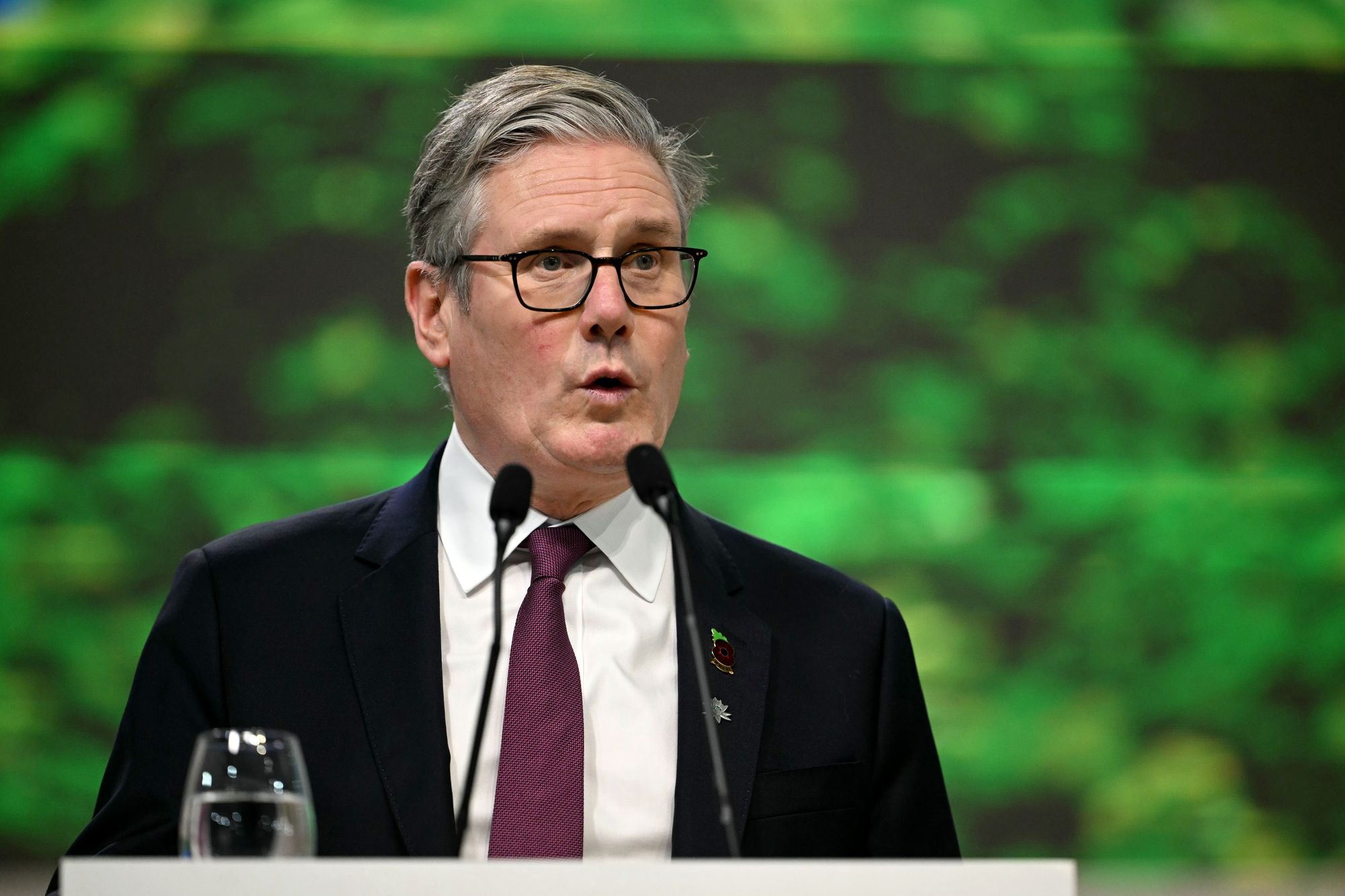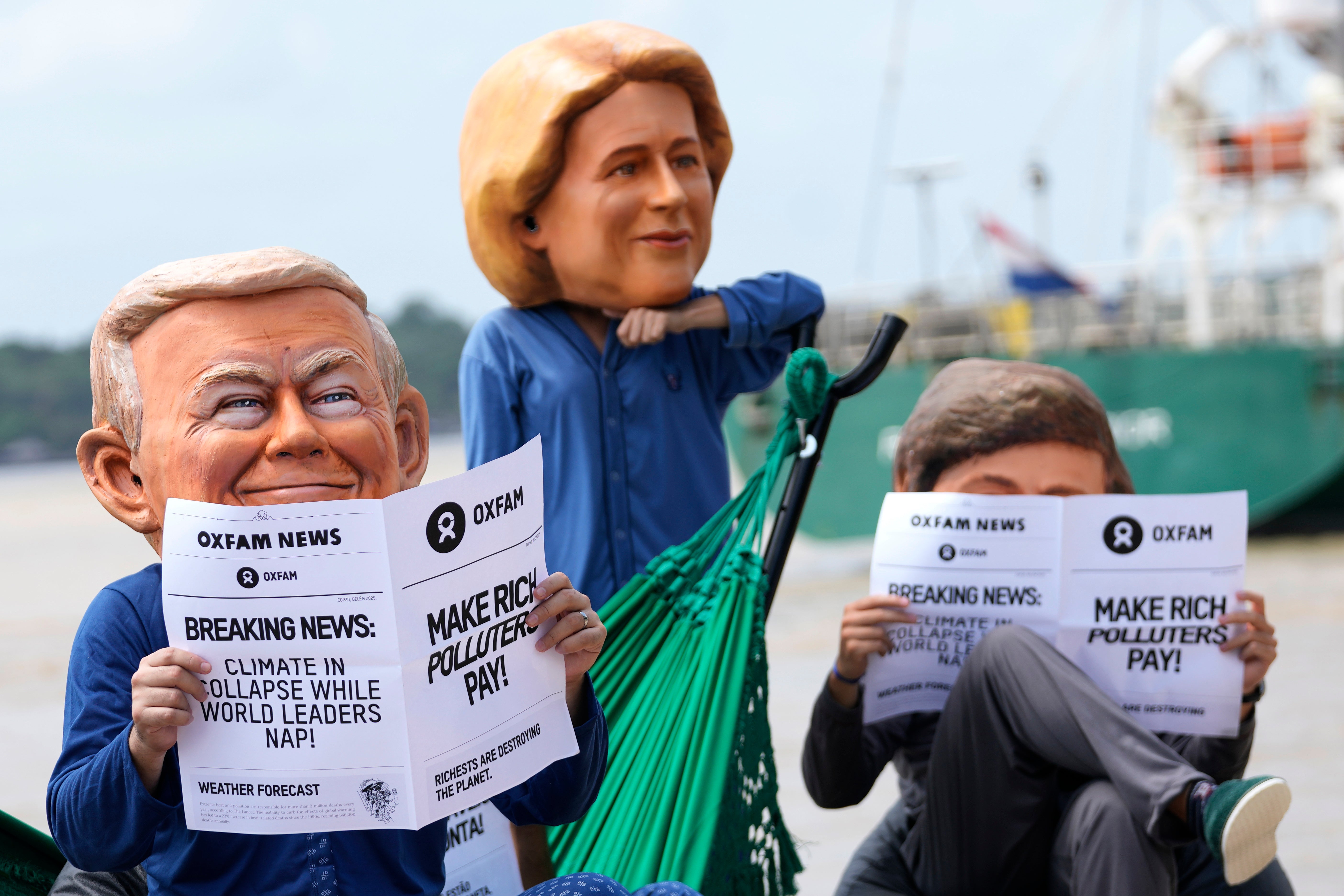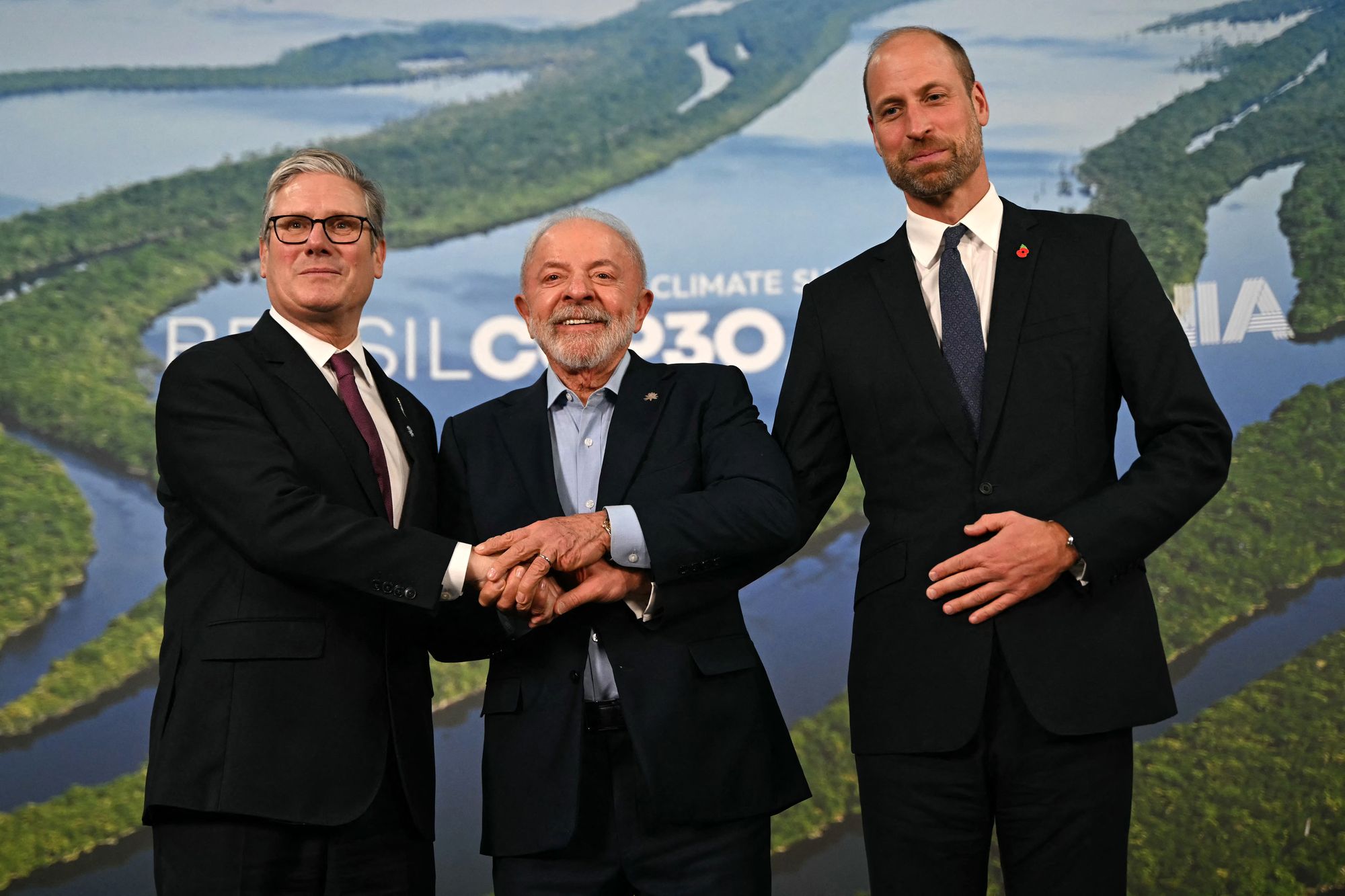
World leaders have gathered in Brazil for the start of the UN’s Cop30 climate summit, as the top leaders of the planet’s three biggest polluters – the United States, China and India – stay away from the opening meeting despite warnings that the 1.5C global warming goal is slipping out of reach.
Brazil’s president Luiz Inácio Lula da Silva opened the summit in Belém on Thursday with a warning against “extremist forces” spreading lies about the climate crisis for political gain.
“We need a roadmap to plan a just way to undo deforestation, overcome fossil fuels and mobilise the resources needed for those aims,” he told fellow leaders, calling for renewed global solidarity to protect tropical forests and fund a just transition.
Sir Keir Starmer, who is attending the summit in person, also admitted the “consensus is gone” on climate crisis as governments across the world row back on pledges to cut emissions.
“But that makes our duty even greater,” the prime minister told the conference: “Because inaction will only deepen the problems of rising bills, energy insecurity and global instability.”
Pointing to the hurricane which recently brought destruction to the Caribbean, he continued: "Just look at the tragic destruction brought by hurricane Melissa: Lives lost, homes, livelihoods, entire communities destroyed, islands just trapped in its devastating path.
"So, we say today to our friends in Jamaica and across the Caribbean, we stand with you.

"But, look, there is a better path for all of us. We can choose to rise to this moment and to recognise that this is not just a problem to be solved, but also an immense opportunity to be seized.
"So, the UK is doubling down on the fight against climate change as an investment in future generations, yes, of course, but also, crucially, as an investment in improving the lives of working people here and now."
The summit takes place against the backdrop of alarming new data from the UN’s World Meteorological Organisation (WMO), which said 2025 is on track to be the second or third hottest year on record. Global temperatures between January and August were 1.42C above pre-industrial levels, and scientists warned it is now “virtually impossible” to stay within the 1.5C limit in the next few years without a temporary overshoot.
“This unprecedented streak of high temperatures makes it clear that it will be virtually impossible to limit global warming to 1.5C in the next few years without temporarily overshooting this target,” said WMO secretary-general Celeste Saulo.
“But it’s still entirely possible and essential to bring temperatures back down to 1.5C by the end of the century.”

UN secretary general António Guterres added: “Each year above 1.5C will hammer economies, deepen inequalities and inflict irreversible damage. We must act now, at great speed and scale, to make the overshoot as small, as short, and as safe as possible.”
"Too many corporations are making record profits from climate devastation, with billions spent on lobbying, deceiving the public and obstructing progress," Mr Guterres said in his speech. "Too many leaders remain captive to these entrenched interests."
Despite these warnings, the absence of US president Donald Trump, Chinese president Xi Jinping and Indian prime minister Narendra Modi has overshadowed the start of Cop30’s high-level segment. The US will not send senior officials, as it pulled out of the Paris Agreement under Mr Trump, while China’s delegation will be led by vice premier Ding Xuexian.
Their absence leaves European and Latin American leaders to take the stage in Belém – a city of 1.3 million people on the edge of the Amazon rainforest – to push for progress on long-delayed pledges of climate finance and action.

Chilean president Gabriel Boric, addressing the summit after Lula, directly criticised Mr Trump, saying the US leader had “lied at the UN General Assembly” when he dismissed climate crisis as “the greatest con job in the world”.
Lula, who has pledged to restore Brazil’s environmental credibility, is expected to unveil a new “Tropical Forests Forever Fund”, a multibillion-dollar initiative that would compensate 74 forested countries for keeping their trees standing.
“I don’t want to be an environmental leader. I never claimed to be,” Lula said earlier this week, responding to criticism of his decision to allow state-owned Petrobras to explore for oil near the mouth of the Amazon River. The move has drawn concern from environmentalists over the risk of oil spills in one of the planet’s most fragile ecosystems.
Belém itself encapsulates the contradictions of hosting a climate summit in the heart of the Amazon. Around 17 per cent of the forest’s original cover has already vanished, cleared for cattle ranching, logging and mining. Delegates arriving by plane see both emerald green canopies and vast brown scars from deforestation.
The city, with limited hotel capacity, has been overwhelmed by tens of thousands of delegates, journalists and activists. Local residents have converted schools, public offices and even cat hotels into makeshift hostels, while “love motels” are charging visitors hundreds of dollars a night.
Unlike recent summits in Egypt, the UAE and Azerbaijan, Brazil has allowed full public demonstrations, with Indigenous groups, youth activists and NGOs marching and sailing into Belém with banners demanding stronger climate action.
“Being able to protest and dialogue is a great thing about this COP,” Laurent Durieux of the US-based International Relief and Development group, told Reuters.
PM vows to ‘double down’ on net zero after admitting ‘consensus is gone’
Energy transition is ‘alive and delivering benefits across world’ – report
William: Courage, co-operation and commitment needed to tackle climate crisis
Why Cop30 remains key to fighting the climate crisis
Natural England boss eyes move from bat-by-bat focus to wider nature restoration
PM vows to ‘stand up for our values and future’ at Cop30 with new power deals







